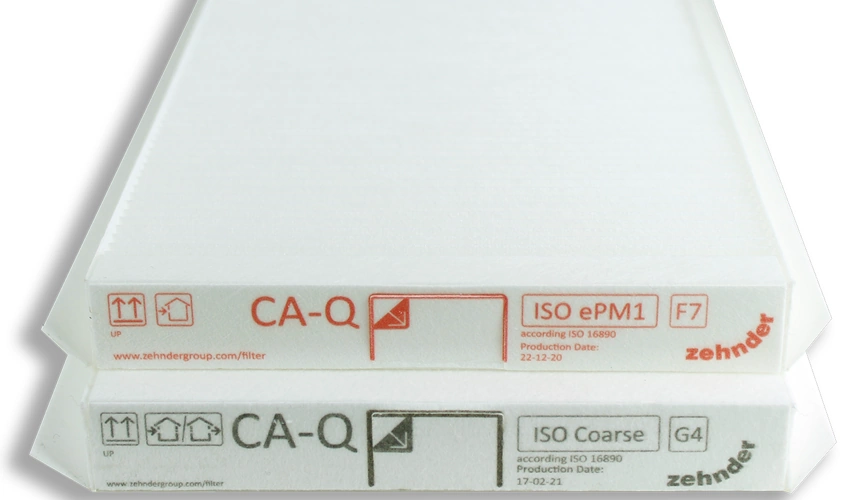When it comes to maintaining your home or business’s ventilation system, regularly changing air filters is essential. However, while it may be tempting to cut costs by purchasing cheaper, off-brand filters, this decision often leads to serious consequences. At Smart-Ventilation, we’ve seen firsthand the problems caused by non-OEM (Original Equipment Manufacturer) filters, which is why we always recommend using filters specifically designed for your unit. This isn’t scaremongering – it’s a reality we encounter time and again.
1. Non-OEM Filters Can Damage Your System
One of the most frequent issues we see with cheap, off-brand filters is that they aren’t engineered to match the airflow requirements of your ventilation unit. Each system is designed to operate with a specific level of resistance, and filters play a crucial role in maintaining this balance.
When non-OEM filters create excessive resistance, it puts additional strain on the system’s motors, which can lead to:
- Increased wear and tear on the motor and components.
- Reduced efficiency, as the system struggles to circulate air.
- Overheating of the motor, which can result in costly breakdowns or, in severe cases, the motor burning out completely.
At Smart-Ventilation, we’ve witnessed many instances where inappropriate filters have caused ventilation systems to fail prematurely. The extra strain reduces the lifespan of the system and often leads to expensive repairs and unexpected downtime.
2. Poor Filtration Performance
Another major issue with off-brand filters is their lack of proper filtration performance. OEM filters are designed specifically for the unit, capturing dust, allergens, and pollutants at the correct level. Off-brand filters, however, frequently offer:
- Inadequate filtration, allowing pollutants to circulate indoors.
- Clogging, as cheap filters become overloaded with particles they weren’t built to handle.
- Higher energy consumption, as the system works harder to push air through a subpar filter.
In our experience, poor-quality filters often compromise indoor air quality, leading to health risks for building occupants, especially those with allergies or respiratory conditions.
3. Increased Energy Consumption
A ventilation system that is forced to push air through a restrictive, off-brand filter requires more energy to function, which results in:
- Higher energy bills, as the unit consumes more power to maintain airflow.
- Overuse of the motor, increasing the likelihood of breakdowns.
- Reduced environmental efficiency, as more energy is wasted.
Using OEM filters optimises airflow and ensures your system runs efficiently, saving you money on energy costs and lowering your carbon footprint.
4. Voiding Your Warranty
Many ventilation systems come with warranties that protect against defects, but these warranties often stipulate that only OEM parts, including filters, must be used. If you use off-brand filters, any damage they cause to your system might void the warranty, leaving you responsible for repairs or replacements. We’ve seen this happen in numerous cases, where customers believed they were saving money but ended up paying far more to fix the damage caused by cheap filters.
5. Poor Fit and Build Quality
Off-brand filters are often poorly constructed and may not fit your system as precisely as OEM filters. This can result in:
- Leaks, allowing unfiltered air to bypass the filter.
- Gaps, reducing the filter’s effectiveness and leading to poor air quality.
- System damage, as poorly fitting filters can cause components to shift or wear out faster.
OEM filters, on the other hand, are engineered to fit your system perfectly, ensuring both performance and protection.
We’ve Seen the Consequences Firsthand
At Smart-Ventilation, this is not just theory – it’s something we’ve seen time and again. Customers who opt for cheap, non-OEM filters often experience system malfunctions, higher maintenance costs, and poor air quality. These filters may seem like a bargain at first, but they end up costing more in the long run. Our goal isn’t to scare you; it’s to protect your investment and ensure your system runs smoothly for years to come.
Conclusion: Protect Your Investment
While non-OEM filters may look like a good deal, the risks they pose to your ventilation system far outweigh any short-term savings. From increased strain on the motors and higher energy costs to voiding your warranty and reduced indoor air quality, the potential issues are significant.
At Smart-Ventilation, we recommend only using OEM filters that are designed for your unit. These filters ensure proper airflow, optimal performance, and long-term reliability. By sticking with OEM parts, you can avoid costly breakdowns and ensure your system provides the clean air and efficiency you expect.
We’ve seen the damage that cheap filters can cause – don’t let it happen to you. Protect your system, your health, and your wallet by choosing quality filters from Smart-Ventilation.


